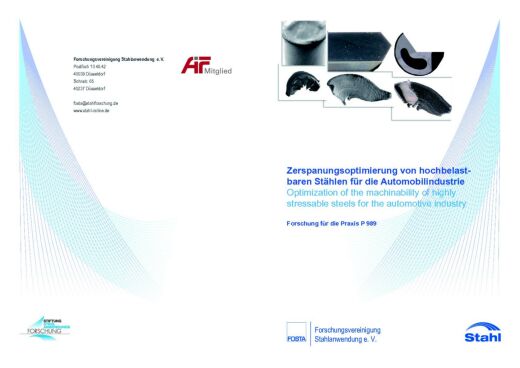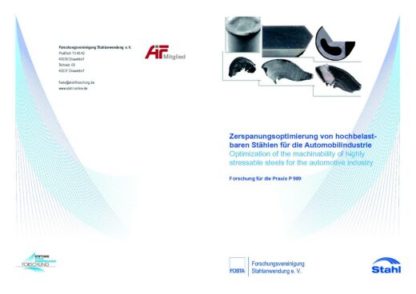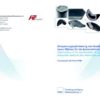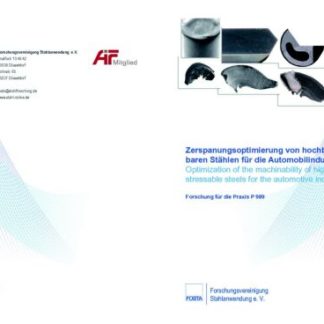Description
P 989 – Optimization of the machinability of highly stressable steels for the automotive industry
The industrial production of components for the automotive industry requires high productive and reliable processes for machining these components. A good machinability of the used construction materials forms the basis for safe and productive machining operations. In particular, a key focus is placed on the chip breakage when using the multispindle-machine concept for producing parts due to high quantities. Normally, by adding alloying elements, e.g. lead, phosphorus or sulfur, the chip breakage will be improved.
Due to the health and environmental damage when using lead, the usage of lead as an alloying element is critical. As a consequence the maximum value of lead in steels has to be less than 0.3 percent by weight of steel to protect the environment. Without alloying lead, in many cases the formation of long continuous chips, like ribbon or snarled chips, occurs, which negatively influences the productivity and process reliability.
The targeted improvement of the machinability of the three different material variants C45 without lead, C45PB with lead and the new developed, modified C45mod without lead was the goal of this research project. All experimental investigations have been done to identify the best combination of forging and heat treatment for machining. According to a multistage forging process of rolling and drawing the influence of the alloying concept, the grain size and the heat treatment due to the machinability have been analysed. Based on this fundamental knowledge, the optimization of productivity and process reliability for the different machining processes like longitudinal turning, deephole drilling (Øtool = 5 mm) and micro deep-hole drilling (Øtool = 2 mm) was carried out.
Especially the chip formation process of the lead-free steels for the different machining processes has been investigated in detail.
With the finalization of the research project fundamental knowledge of the influence of the alloying concept, the grain size and the heat treatment process on the machinability of the three different material variants C45, C45mod and C45Pb is available. For the machining process turning, a wide database of different tools for machining lead-free or lead-containing, heat-treated or non-heat-treated C45-materials has been generated.
Productive and reliable machining processes of lead-free steels when drilling with both diameters could be realized. For all machining processes addressed within the research project, optimized tool geometries (chip breaker when turning and alternative tool geometry when drilling) led to more productive and reliable machining processes.
Only available in german language.
Published in:
December 2016
FOSTA – Research Association for Steel Application




